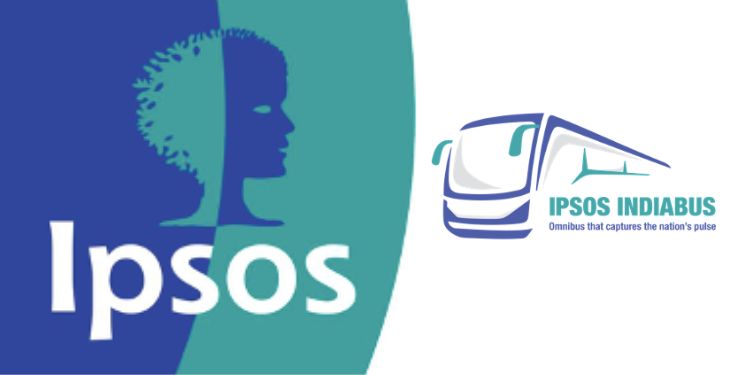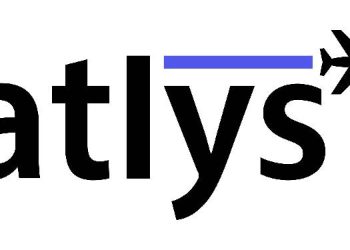Mumbai: With the Tata Indian Premier League (IPL) 2024 extravaganza off to a flying start, an Ipsos IndiaBus pan India IPL Survey shows at least 1 in 2 urban Indians polled (53%) claim to be following the sporting event. Men’s T-20 annual sporting event in its 17th year, has a run of about 60 days, making it a highly engaging event for cricket lovers.
Interestingly, more males (67%) claimed to be following the event vis-à-vis females (38%). Though there was not much difference seen across age bands and their interest in the game – 18-30 years (56%), 31-45 years (56%) and 45+ (45%) claimed to be following the IPL.
Excitement with IPL: The IPL has struck a chord with the cricket enthusiasts with 88% of those polled (and following the IPL) claiming to be excited about the annual sporting event.
The excitement was palpable across demographics to the same extent, though among a few cohorts it was a lot higher, particularly the south zone (96%), north zone (93%), metros (91%), tier 2 (92%), tier 3 (95%), high education (92%), self-employed (95%) and 45+ age group (92%).
Commenting on the findings of the Ipsos IndiaBus IPL Survey, Parijat Chakraborty, Group Service Line Leader Public Affairs, Corporate Reputation, CSR and ESG, Ipsos India said, “Tata IPL 2024 is this big, 60 day annual big treat for cricket enthusiasts, which has a heady mix of great batting and bowling order – also captured under orange and purple caps – best of cricket, world class players unleashing their prowess under pressure and the short format of cricket, creating a high level of engagement and excitement around this annual fiesta. The stakes are high, and this is one recession-proof brand. As the event picks up, those following the game are likely to increase.”
Where is the IPL being watched?
Urban Indians who are extremely kicked about the sporting event claimed to be watching the IPL 2024 across different mediums of access – Television (75%), online/ mobile (49%), OTT platforms (20%) and radio (4%). 33%).
And if we explore deeper, while TV is the most popular medium for watching the game, more number of respondents from north zone (83%), full time parents and homemakers (84%), SEC B (80%), SEC A (78%), 45+ age group (86%), metros (79%), tier1 cities (79%) said they are watching the game on TV.
Further, those watching the game on their mobile devices were largely the self-employed (68%), employed – part time or full time (56%), males (57%), 31-45 years (54%), 18–30-year-olds (51%), high education (58%), living in the metros (56%), from the south zone (56%) and west zone (55%).
The game was being watched on OTT more by those belonging to SEC A (44%), metros (34%), high education (32%) and self-employed (33%).
And those catching the game on the radio were largely the self-employed (9%), from tier 1 (9%), west zone (8%), SEC A (7%) and women (7%). Males were a miniscule 2%.
The survey also explored the psyche of the IPL enthusiasts, to understand from them the motivations for liking the IPL so much. There is so much noise and chatter around this annual spectacle, which also packs in the best of breed and play in Cricket.
Why is the IPL liked?
Urban Indians claimed to be liking the IPL for a plethora of reasons – entertainment (64%), T-20 format (47%) and the team format – of world class players (37%).
Audiences most kicked about the entertainment aspect were the self employed (76%), from east zone (74%), south zone (72%), SEC A (71%), SEC B (64%), men (64%), women (62%), aged 45+ (67%), 18-30 years (64%), 31-45 years (62%) etc.
T-20 format was most liked by respondents from SEC A (65%), metros (75%), high education (58%), tier1 (52%), tier2 (50%), west zone (53%) and north zone (50%).
And those most enthused about the T20 team format were, SEC A (54%), employed (47%), men (40%), high education (45%), tier 1 (52%), metros (42%), tier 2 (41%), east zone (53%) and west zone (45%).
“When the IPL made its debut 17 years ago, conceived by the Board of Control for Cricket in India (BCCI), it was a big draw and it continues to be one of the most anticipated annual sporting events. This year there are 10 teams and 74 matches. Also the matches are aired from evening to night, over 3 hours, making it conducive for cricket enthusiasts to watch the game without disruption. With great cricket, cricket legends, Bollywood, music, cheerleaders and toots, the whole experience is now being called Cricketainment. And the BCCI has set up 50 fan parks in different cities of India, to enhance the whole experience for audiences, bringing the game closer to the fans. Fan parks during the weekends have giant size screens, music, subsidized food for cricket fans to enjoy the IPL at another level.
“The 10 teams of Delhi Capitals, Kolkata knight Riders, Lucknow Super Giants, Mumbai Indians, Rajasthan Royals, Chennai Super Kings, Gujarat Titans, Punjab Kings, Royal Challengers Bengaluru and Sunrise Hyderabad are playing 74 matches in 13 cities from March 22nd to May 26th, 2024, making it a visual treat for cricket crazy country like India. With defending champions Chennai Super Kings hosting the opening and closing ceremony, there is a keen interest among south zone fans for the game and across cities and cohorts. With free live streaming of the IPL on Star Sports (TV) and Jio Cinema (internet) it will be about excitement, entertainment and eyeballs, as the IPL keeps getting bigger,” stated Chakraborty.
How is the IPL most watched?
Urban Indians said they mostly watch the game with family (49%), friends (22%), alone (18%) or with colleagues (9%).
The survey even drilled it down to the cohorts on how they were watching the IPL – those watching with family were largely full-time parents/ homemakers (75%), women (73%), 45+ age group (62%), SEC A (55%), SEC B (54%), north zone (58%), east zone (55%), tier 1 (55%) and metros (51%).
Those watching with friends were particularly males (29%), SEC C (32%), south zone (41%), east zone (31%), tier 3 (33%), self-employed (32%) etc.
Those watching alone were males (23%), aged 45+ (23%), employed (24%), tier 2 (26%), north (21%), south (20%) etc.
Those watching with colleagues, aged 18-30 years (13%), students (14%), tier 1 (17%), west zone (15%), north zone (12%), et al.

















